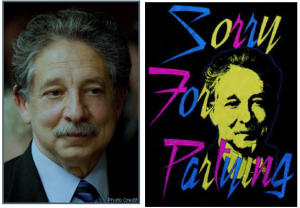With much anticipation, the Second Circuit issued its opinion last week in the Google Books case (Authors Guild et al. v. Google, Inc.), brought by authors Jim Bouton (of Ball Four fame) and others against Google for the latter’s program of scanning millions of library books, whether or not those books are in the public domain. My overwhelming reaction to the opinion, however, in the realm of visual art, is what a lost opportunity the Prince v. Cariou decision was two years ago, and some optimism that the most recent decision will start to provide useful guidance for practitioners that has been harder to give with confidence since Prince. After two years of the preeminence of the first fair use factor threatening to dwarf everything with a “transformativeness” test that essentially any use could meet, Google Books (even while finding a fair use) restores some balance to that analysis.
Google Books, Fair Use, and Visual Art—Second Circuit Writes Decision That Would Have Helped Two Years Ago
Topics: Richard Prince, Campbell v. Acuff-Rose Music, Hildebrand Gurlitt, 510 U.S. 569, Teenage Mutant Ninja Turtle, Prince v. Cariou, Second Circuit, Canal Zone, Patrick Cariou, Toward a Fair Use Standard, Michelangelo, Suicide Girls, Inc., Google Books, The Legal Guide for Museum Professionals, Pierre Laval, Jim Bouton, Copyright, transformativeness, Fair Use, Nazi-Looted Art: Risks and Best Practices for Muse
Fair Use and Transformativeness Pushback: Seventh Circuit Takes a Swipe at “Lazy Appropriators”
Much ink has been spilled over the new world order seemingly announced by last year’s Second Circuit decision in Prince v. Cariou with regard to copyright, fair use, appropriation art, and “transformativeness.” In a nutshell, while roundly criticized, most commentators have taken the Prince decision to announce the apotheosis of “transformativeness” among the fair use factors in § 107 of the Copyright Act. Prince looked at the four statutory factors and applied them in such a way that to be considered “transformative” was to qualify for fair use. Most troubling was the “know it when you see it” character of the opinion. The Google Books opinions took a similar view.
Topics: Richard Prince, Cheshire Cat, Copyright Act, 17 U.S.C. §106, Seventh Circuit, Prince v. Cariou, Mifflin Street Block Party, Google Books, Campbell v. Acuff Rose, Wisconsin, Sorry for partying, Madison, Copyright, Kienitz v. Sconnie Nation LLC, Judge Frank Easterbrook, First Amendment, transformativeness, Fair Use, mayor Paul Soglin, 17 U.S.C. §107
Art Law This Week at the City Bar: “Copyright Fair Use: The Importance of Being Transformative” and “Hot Topics in Art Law 2014”
Looking forward to two great art and law events this week at the New York City Bar, both at 42 West 44th Street. Hope to see many of you there!
Topics: consignment, Cariou v. Prince, Judith A. Bresler, The Importance of Being Transformative, Copyright Fair Use, P.C., Judith Prowda, authentication, Kirkland & Ellis LLP, Dean R. Nicyper, Howard N. Spiegler, Authenticity Issues and Recent Developments, Stacy Lefkowitz, Has Transformative Use Gone Too Far?, Berkeley Center for Law and Technology, Google Books, The Law Applicable to Art Consignments, Garcia v. Google, Restitution, Dale Cendali, Pamela Samuelson, Copyright, Cowan Liebowitz & Latman, Visual Arts and the Law, Berkeley Law School, Judge Denny Chin, Sotheby’s Institute, Fair Use, Richard Dannay, Art Repatriation and Restitution
Fair Use and Social Utility: Google Books Case Could Drive Copying of Visual Arts in the Name of Access
Comments by the federal judge overseeing the copyright dispute arising out of the Google Books project could portend a lasting effect on reproductions of visual arts. Elevating the question of social benefit in a fair use analysis, Judge Denny Chin of the U.S. District Court for the Southern District of New York posed a question that, applied broadly (which is no theoretical proposition where Google is involved) could turn fair use analysis on its head. Time will tell if the comments were oral argument musings or something more lasting.
Topics: Google Books, 17 U.S.C. § 107, Copyright, The Authors Guild, Judge Denny Chin, Fair Use



